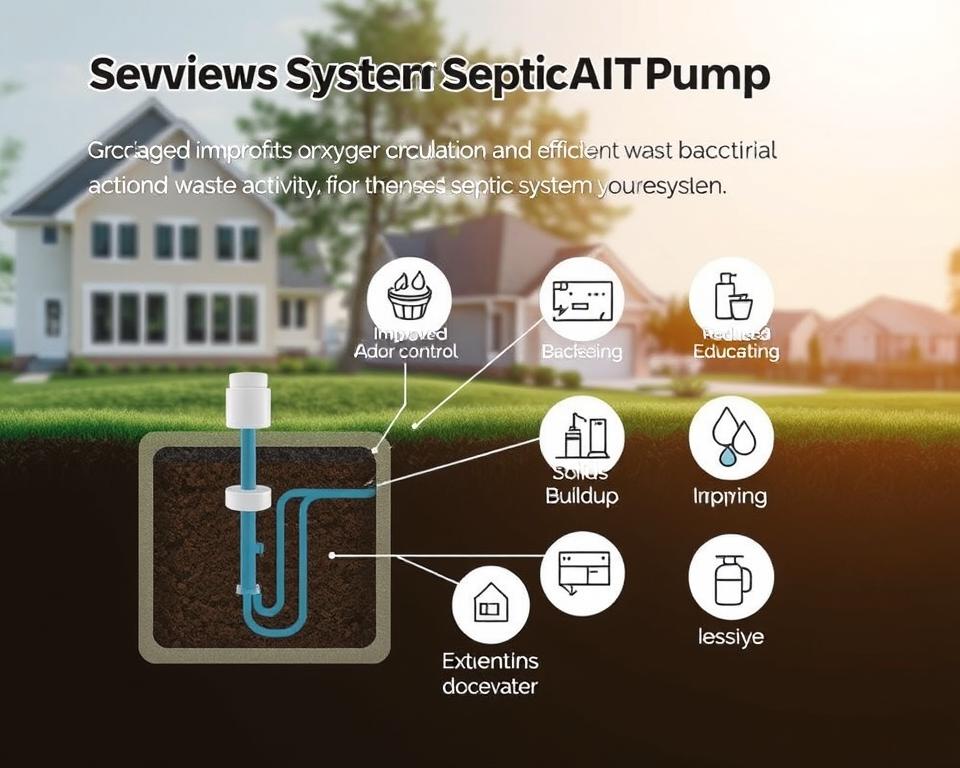Septic Tank Pump Swap: Step-by-Step Guide
Have you considered the consequences of a Septic Tank Pump malfunction? For many, it’s a event that brings major stress and sudden costs. Realizing the need for prompt replacement is essential in maintaining a efficient and clean Septic system. By sticking with routine check-ups, including prompt repair needs, you increase your system’s life while sidestepping high emergencies. Companies like All in Sanitation play a major function in ensuring your Septic tank running properly. This guide offers a concise understanding of Septic Tank Pump replacement, detailing alert signals and service pointers for septic system service.
Core Takeaways
- Comprehending the job of a Septic Tank Pump is important for homeowners.
- Early Septic Tank Pump replacement can reduce long-term expenses.
- Regular service and cleaning are important to extending the lifespan of your Septic system.
- Professional assistance can properly handle Septic system Pump repair and maintenance.
- Detecting initial symptoms of Pump failure can sidestep costly repairs.
How Your Septic System Works
A Septic system is important for homes without access to municipal sewers. It treats and disposes of household wastewater responsibly. The Septic tank is key to this system’s performance, serving an important role in the process.
The Septic tank collects sewage, splitting solids from liquids and scum. This separation is crucial for efficient wastewater treatment. The clarified water then travels to the drain field, where it gets further treatment by the soil, preserving groundwater.
Grasping how your Septic system runs can increase its life and efficiency. Regular upkeep is vital for the Septic tank and the system’s overall well-being. Homeowners must learn about their system’s specifics to avoid environmental damage and avoid high-cost work.
Defining a Septic Tank
A Septic tank is a in-ground, sealed container central to household waste management systems. It’s important to understand the Septic tank’s main duty: it handles sewage waste storage by treating it. This setup acts by isolating solids from liquids, promoting basic wastewater treatment and sanitation.
Its operation is powered by naturally occurring microorganisms that decompose waste. In places without centralized sewage treatment, Septic tanks are necessary. They store sewage long enough for solids to sink, forming sludge. Meanwhile, liquid effluent collects above, allowing filtration in the drainage field.
Upkeeping a Septic tank in sound shape is crucial for its performance and life expectancy. Regular maintenance is important to avoiding problems like backups and overflows. These issues can lead to costly fixes and pose ecological threats. In essence, Septic tanks are indispensable in keeping things clean and safe, especially in rural areas.

How to Tell a Pump Needs Replacing
Homeowners should be alert of signs that their Septic tank may need a new Pump. A definite sign is experiencing foul odors around drains or in the garden, indicating a system failure. Dealing with frequent or serious sewage backups in your home calls for urgent action to head off worse issues.
Detecting slow draining drains shows a potential problem. Household fixtures that drain sluggishly might mean a Pump failure or a clog requiring an expert’s evaluation. Additionally, sections of overly lush vegetation in your yard could indicate trouble; this implies waste leakage, resulting in overflow concerns.
To sidestep serious, high-cost restoration, homeowners should handle these signs promptly. Performing regular inspections and maintenance is key for the Septic system’s peak function.
| Signs | Description |
|---|---|
| Foul Odors | Unpleasant smells around drains or yard suggesting system failure. |
| Sewage Backup | Regular sewage returns in sinks or toilets indicating potential Pump issues. |
| Slow Draining Drains | Fixtures draining slowly can suggest blockages or Pump malfunction. |
| Lush Vegetation | Areas of excess growth near the tank indicating possible overflow. |
Pump Lifespan and Timing
Grasping the interval for replacing your Septic Pump is key for a smooth-running Septic system. It’s recommended to have your system assessed every three years. A trained technician during these checks provides feedback into how well your system operates.
Typically, service of the Septic tank becomes needed every five years. However, households with heavy usage or a higher occupancy might need annual service. Proper care of your Septic system avoids high restoration costs and lengthens its lifespan. Technicians in Septic services can develop a maintenance plan that suits your demand and the particulars of your system.
Remaining prepared with Septic Pump replacements guarantees your system’s peak performance and protects your home investment. Consistent checks and care prevent unexpected outlays. They maintain seamless system operation.
Pump Replacement Pricing
The Septic Pump replacement cost fluctuates, dependent on many aspects. Homeowners should anticipate costs of $500 to $1,300 for a new Pump. This price range reflects diversity in the type of Pump and material needs. It’s necessary to factor in the Pump and Septic tank servicing costs for the installation and required inspections.
Costs can also increase due to complications within the Septic system or regional labor rates. Needed fixes, resulting from wear or harm, could boost the total outlay. In calculating financial estimates for Septic services, add charges for regular upkeep, reviews, and any unforeseen emergencies since these factors are vital for maintaining your system’s longevity.
Allocating funds for periodic Septic service reduces the shock of sudden charges. Upfront planning assists residents in covering expenses associated with the Pump’s replacement and system upkeep.
How Pump Replacement Works
The Septic Tank Pump replacement commences with a thorough inspection of the system. This preliminary check detects any additional issues aside from the Pump itself. The old Pump is then extracted carefully and efficiently.
Installing the new Pump demands careful attention to leak-free joints, guaranteeing no leaks. Expert crews see that the installation is done correctly, minimizing future issues.
The closing stage is a detailed wrap-up review. It confirms peak operation, giving homeowners security. With qualified aid, the process is simple, with little disturbance.
Septic Tank Pump Installation Best Practices
When tackling Septic Pump installation, it’s important to observe best practices. Bringing in licensed contractors secures compliance with local regulations. They competently oversee the installation complexities, eliminating errors common in inexperienced setups.
Sticking to stringent Septic service standards is central for harmonious performance. Selecting correct components and quality materials increases the Pump’s life and optimizes the Septic system’s efficiency. This meticulous attention enhances maintenance and overall performance longevity.
- Select a reputable service provider who focuses in Septic systems.
- Confirm that all necessary permits and inspections are in place before work starts.
- Opt for Pumps that match the specific requirements of your Septic system.
- Schedule a pre-installation inspection to check site conditions.
- Keep in mind the layout and flow of the Septic system during installation.
Following these guidelines results in a seamless setup. It also secures a dependable system for sound wastewater control.
Caring for Your Septic System
Stopping high bills with your Septic system originates with consistent service. By employing basic guidelines, homeowners can keep their Septic systems’ efficiency. Scheduling routine inspections is a smart move. It detects and rectify problems before they become significant.
It’s also necessary to refrain from flushing harmful materials down the drain. Cooking oil, chemicals, and items that don’t break down can damage your system. Cutting water use during busy periods can also ease system load.
Booking professional cleanings with entities like All in Sanitation is vital for Septic health. Learning what you should and shouldn’t do with your Septic tank can significantly increase its lifespan and secure your household environment.
Understanding Cleaning Services
Consistent Septic tank cleaning is essential for your system’s ongoing function and efficiency. The process entails sludge removal, checking for damages, and ensuring everything runs smoothly. These steps are critical to support reliable function and stop pricey problems.
A detailed Septic maintenance plan should include regular inspections and cleanings that align with your specific demand. Homeowners must recognize the importance of timely maintenance to prevent issues like backups. Using professionals guarantees the cleaning is complete, promoting a clean living environment.
| Service Type | Frequency | Benefits |
|---|---|---|
| Pumping | Every 3-5 years | Prevents system failure and backups |
| Inspection | Annually | Identifies potential issues early |
| Maintenance | As needed | Prolongs the lifespan of the system |
Committing to routine Septic tank cleaning lowers spending and increases your system’s life. It maintains trouble-free waste handling. Taking action now guarantees your Septic system’s efficiency for the future.
Choosing a Replacement Service
Locating a dependable Septic service provider is essential when replacing a Septic Tank Pump. Initially, confirming their certifications and licenses. Such credentials demonstrate the company’s compliance with industry norms, critical for a trouble-free replacement process.
Researching customer reviews is also a smart idea. Past feedback shows service quality, supporting the filtering process. Select companies with a consistent track record of high standards and customer support.
Acknowledge recommendations from your community too. Insights from friends and neighbors can point to top-notch Septic services in your vicinity. Always ask for detailed accounts of their satisfactory experiences with these services.
Finally, evaluate the range of services and cost from various firms. A thorough analysis provides exceptional service and enhances the value of your expenditure. Keeping to these guidelines ensures your Septic system receives the premium care it deserves.
DIY or Hire a Pro?
Homeowners often debate whether to handle Septic issues personally or call in experts. DIY Septic maintenance is attractive for basic fixes and upkeep. For example, keeping an eye on levels or flushing drainage lines can be done on your own.
In contrast, recognizing when to hire Septic professionals is essential for significant failures. Complex fixes, replacing systems, or major clogs demand specific equipment and skills. Without the right skills, attempts to repair these problems can result in contamination and significant harm.
Choosing between DIY and professional help calls for judging the job’s complexity. Presented below are examples showing when DIY is appropriate and when professional Septic services are required:
| Situation | DIY Feasibility | Need for Professional Help |
|---|---|---|
| Routine maintenance (e.g., tank level checks) | Yes | No |
| Minor clogs in drain fields | Yes | No |
| Major Septic Tank Pump failure | No | Yes |
| Complex sewage backflow issues | No | Yes |
| Regular system inspections | Possible DIY | Yes for thorough checks |
Deciding smartly on these matters guarantees safety and efficiency. Opting properly protects as well as the Septic system but also heads off unplanned bills.
To Conclude
Comprehending the workings of your Septic system is vital for its proper care and your home’s performance. Spotting initial signals of issues helps avoid pricey repairs and ensures the system’s integrity. This anticipatory approach helps the environment and raises your property value.
To keep your Septic system in excellent condition, prioritize maintenance. This involves consistent assessments and on-time professional Pumping. This small outlay secures your home’s safety and your family’s health. Your Septic system operates smoothly with adequate service.
Our team at All in Sanitation is committed to offering high-quality Septic care. We deliver the experience required to ensure your system operating efficiently, safeguarding your home investment over time. With our focus on outstanding care and trustworthiness, we’re ready to meet your Septic maintenance needs.


